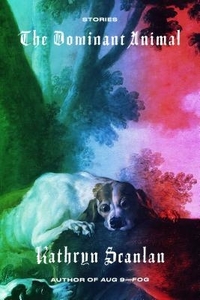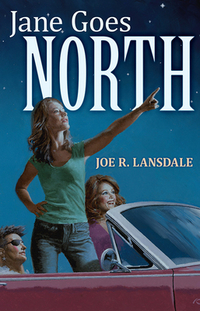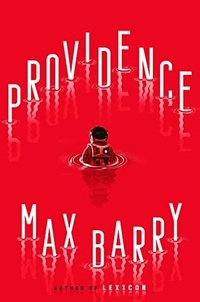The Dominant Animal by Kathryn Scanlan
 Monday, April 6, 2020 at 7:06AM
Monday, April 6, 2020 at 7:06AM 
Published by Farrar, Straus and Giroux/MCD x FSG Originals on April 7, 2020
Stories like Kathryn Scanlan's seem to be in vogue in literary circles. They are praised for being astutely observed; whether the observations are worthwhile seems to be less important than the writer’s ability to capture a moment or sensation, or to illuminate or at least illustrate a shared human experience. Plot and characterization are secondary, indeed unimportant, to stories like these.
This is hardly a new trend. In a couple of recent books, Sam Reese quotes an observation that A.L. Balder made in 1945, when he described the (then) “modern short story” as “plotless, static, fragmentary, amorphous — frequently a mere character sketch or vignette, or a mere reporting of a transient moment, or the capturing of a mood or nuance.” That’s pretty much how I would describe the stories in The Dominant Animal.
I have picked up and put down several story collections in recent years, unable to make it to the end both because the stories seem pointless and because nothing about the way they were written grabbed me. I made it to the end of The Dominant Animal because, although it is packed with stories, each can each be consumed in a minute or two. Many of the stories have an ambiguous meaning. A surgeon who cares about animal rights traps mice that are destroying his expensive cars by using glue boards, inadvertently kills one while trying to free it, and then closes the eyelids of the woman to whom he is relating the story. What’s that all about?
The picnickers in another story eat their hands while waiting for a pig to roast. In her mind, a woman compares baby squirrels to human babies. A man who awakens his neighborhood with a chainsaw every morning is arrested and quickly released, both for reasons unknown. In the title story, a woman disowns a dog that kills her other dog, then goes walking with a man who makes a strange sound. Dying pets and disagreeable men are recurring themes.
Maybe these stories will make more sense to other readers than they did to me. To be fair, I did appreciate a few of the stories. The story I most enjoyed is “Mother’s Teeth,” perhaps because it is slightly longer than the rest. While waiting for her mother’s chemo session to end, a woman eats ice cream and has sex with an elderly man in the locker room of a recreational facility. Later she endures her mother’s criticism, but the ending is happy (in the narrator’s view) because her mother dies.
A story about a woman who brazenly misappropriates another woman’s dog is interesting. So is an ambiguous story about two children who seem to be fending for themselves. A story about a disastrous casino and golfing vacation has something to say about the importance of changing patterns, just like clouds that are “tired of the same old thing.” A story about Scandinavian dieting is amusing. A story about untraining a trained dog would have been amusing but for the darkness that surrounds it.
So that’s about a half dozen of the forty stories in this collection that did anything for me at all. The ratio is just too low to recommend the volume as a whole.
NOT RECOMMENDED



